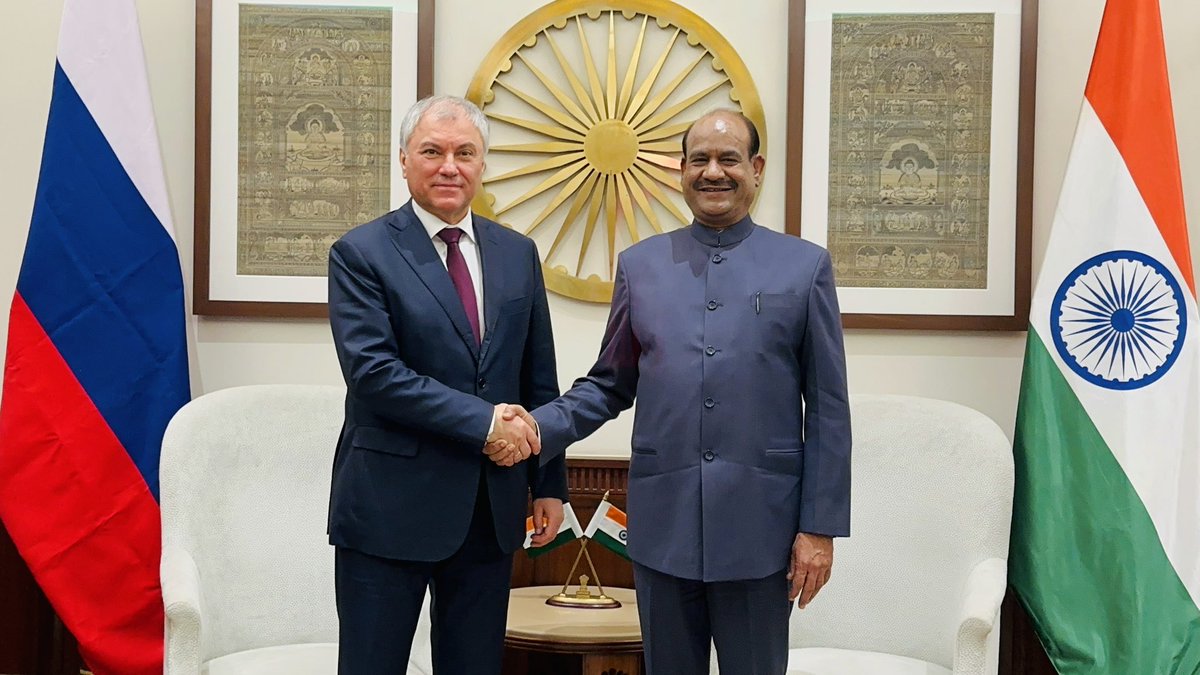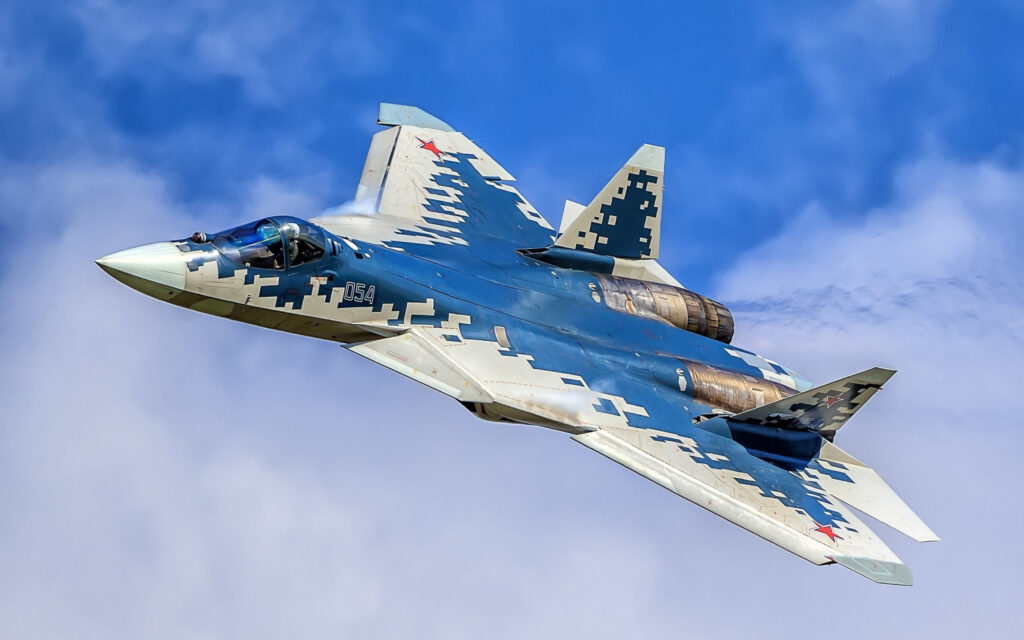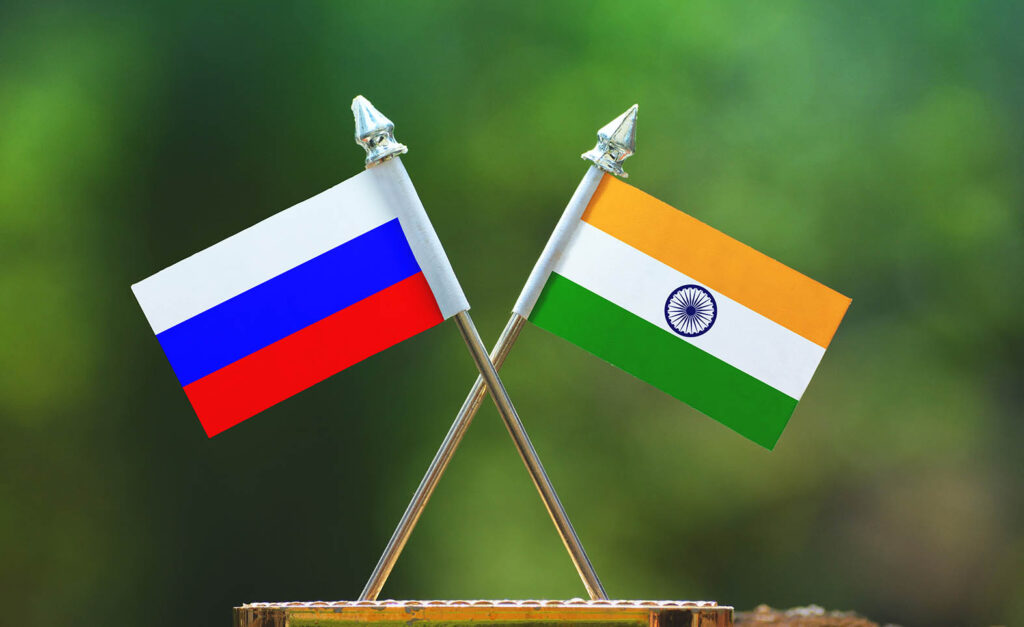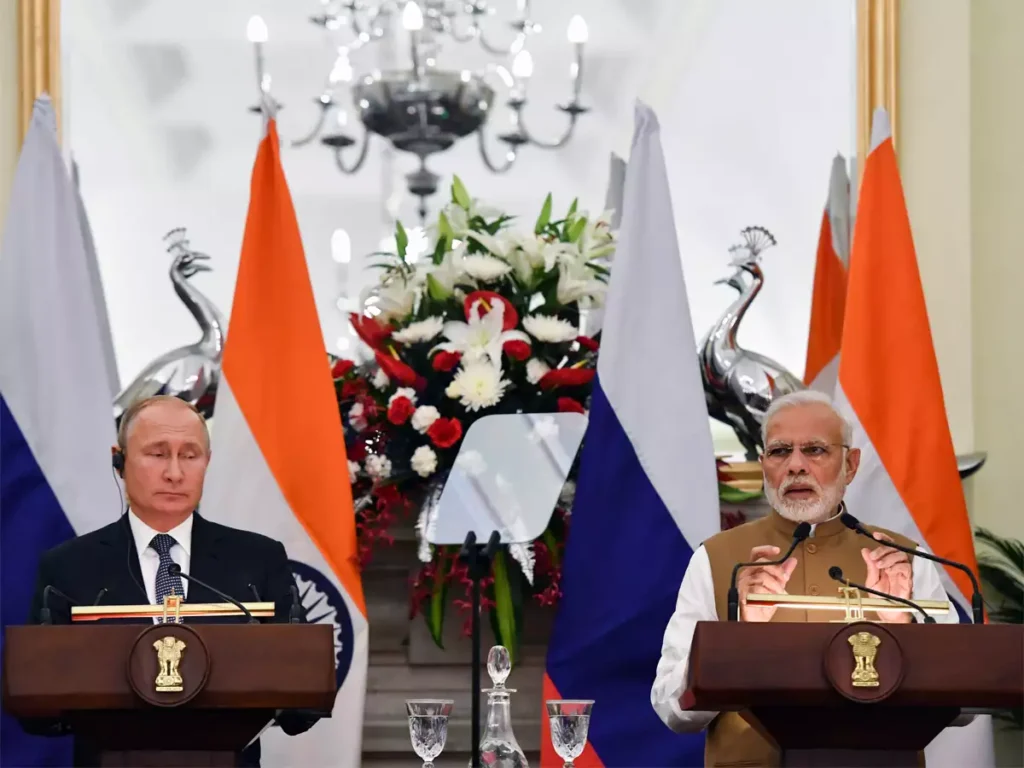
Vyacheslav Volodin’s Visit to India: Strengthening Strategic Ties
Vyacheslav Volodin, the Speaker of the Russian State Duma, holds a crucial role in Russian politics and diplomacy. As a close ally of President Vladimir Putin, he has played a pivotal part in diplomatic engagements, influencing Russia’s foreign policy and strategic partnerships. His recent visit to India underscored the deep-rooted India-Russia relationship, particularly in defense, India-Russia nuclear energy cooperation, and parliamentary cooperation.
A key aspect of his visit was India-Russia nuclear energy cooperation, as Russia seeks to expand its presence in India’s growing nuclear sector. This article delves into Volodin’s political influence, his visit’s significance, and the long-term impact on India-Russia relations.
Volodin’s Political Influence and Role in Russia
Vyacheslav Volodin has been a central figure in Russian politics, known for his unwavering support of President Putin. His influence extends beyond domestic policies, as he plays a crucial role in shaping Russia’s diplomatic strategies.
Putin’s Trusted Ally
- Volodin has been instrumental in strengthening Russia’s legislative framework.
- He has played a key role in ensuring the Russian Parliament aligns with the Kremlin’s policies.
Diplomatic Engagements
- Volodin has been a key figure in Russia’s diplomatic efforts, often serving as a messenger during critical international crises.
- His engagements with foreign leaders have reinforced Russia’s global stance on various geopolitical issues.
Recent Controversial Statements
- Recently, he made headlines by warning of nuclear retaliation if Putin were to be directly attacked.
- His statements reflect Russia’s aggressive stance on national security.
| Aspect | Details |
|---|---|
| Political Role | Speaker of the Russian State Duma |
| Key Influence | Close ally of Putin, shapes legislative policies |
| Diplomatic Role | Engaged in high-level diplomatic missions |
| Recent Stance | Warned of nuclear consequences for direct attacks on Putin |
Volodin’s Visit to India: A Symbol of Strong Bilateral Ties
Volodin’s visit to India was marked by warm receptions, high-level meetings, and strategic discussions. The visit was aimed at reinforcing the India-Russia nuclear energy cooperation, defense collaborations, and economic ties.
Key Highlights of the Visit
Reception in the Indian Parliament
- He was given a grand welcome, emphasizing India’s commitment to its partnership with Russia.
- Indian leaders acknowledged Russia’s contributions to India’s defense and energy sectors.
Meetings with Indian Leadership
- Volodin held discussions with President Droupadi Murmu and Vice President Jagdeep Dhankhar.
- Talks focused on strengthening parliamentary cooperation and economic partnerships.
Focus on Strategic Ties
- India and Russia reaffirmed their commitment to long-term strategic collaboration.
- Discussions covered technology exchange, defense procurement, and nuclear energy cooperation.
| Meeting | Key Discussion Points |
|---|---|
| With President Murmu | Strengthening parliamentary and economic ties |
| With VP Dhankhar | Expanding defense and nuclear energy cooperation |
| With Indian Lawmakers | Enhancing legislative collaborations |
Strategic Discussions: Defense & Nuclear Cooperation
One of the major aspects of Volodin’s visit was the push for greater defense and energy collaborations between the two nations. India and Russia explored opportunities in advanced military technology and India-Russia nuclear energy cooperation.

Defense Partnership
Su-57 Fighter Jet Offer
- Russia is encouraging India to consider the Su-57 as an alternative to the US-made F-35.
- The Su-57 offers stealth capabilities and advanced avionics suited for India’s defense needs.
Technology Transfers
- Russia proposed technology-sharing agreements in defense manufacturing.
- India seeks more localized production to reduce dependency on imports.
Nuclear Energy Cooperation
Small Modular Reactors (SMRs)
- Russia’s Rosatom has offered to transfer SMR technology to India.
- SMRs provide a flexible and cost-effective approach to nuclear power generation.
India’s Nuclear Budget & Research
- India has allocated ₹20,000 crores for nuclear research, signaling strong interest in expanding its nuclear capabilities.
- Russia sees this as an opportunity to deepen its engagement with India’s nuclear sector.
| Area of Cooperation | Key Proposals |
|---|---|
| Defense | India to consider Su-57 purchase |
| Technology Transfer | Russia offers SMR technology |
| Nuclear Budget | ₹20,000 crore allocated for nuclear research |
India’s Consideration of Russia’s SMR Offer
India is carefully evaluating Russia’s offer for Small Modular Reactors (SMRs) while keeping an eye on safety, technological feasibility, and long-term energy independence.
Key Considerations
Feasibility & Deployment
- SMRs are ideal for remote areas and military bases.
- India is considering whether it can locally develop similar reactors in the future.
Safety & Regulation
- Russia’s past experience in nuclear projects strengthens its case.
- However, India is reviewing nuclear liability laws before committing to long-term agreements.
Self-Reliance vs. Collaboration
- India aims to boost its domestic nuclear energy industry.
- A strategic partnership with Russia could accelerate progress but may also create dependency.
| Factor | India’s Position |
|---|---|
| Feasibility | Evaluating SMR deployment for remote areas |
| Safety Concerns | Reviewing regulatory and liability laws |
| Energy Independence | Aims for self-reliance but open to Russian collaboration |

India-Russia Relations: Future Prospects
The India-Russia nuclear energy cooperation plays a crucial role in shaping the future of bilateral relations. As both nations seek to strengthen their geopolitical and economic ties, nuclear energy is emerging as a key area of focus.
Key Areas of Cooperation
Expanding Nuclear Power Plants
- Russia has already contributed to India’s Kudankulam nuclear power plant.
- Future collaborations could include joint research and reactor development.
Strategic Alignment in Defense & Technology
- Both nations seek to balance their global partnerships while deepening defense ties.
- Russia remains one of India’s largest arms suppliers.
Economic & Trade Partnerships
- Despite global sanctions on Russia, India continues to engage in trade, particularly in energy resources.
- The two countries are exploring new payment mechanisms to bypass international restrictions.
| Sector | Future Cooperation Areas |
|---|---|
| Nuclear Energy | Expansion of power plants & SMRs |
| Defense | Su-57 purchase, technology sharing |
| Trade | Alternative payment mechanisms |
Conclusion
Vyacheslav Volodin’s visit to India highlighted the deep strategic ties between India and Russia. With a strong focus on India-Russia nuclear energy cooperation, the discussions opened new avenues in defense, energy, and technology exchange.
While India carefully considers Russia’s offer on Small Modular Reactors, the broader implications of this partnership could shape future energy policies. As the global geopolitical landscape evolves, India and Russia remain committed to strengthening their long-standing friendship through mutually beneficial collaborations.
India-Russia Nuclear Energy Cooperation in 2024 and 2025
The geopolitical landscape of the 21st century has been marked by shifting alliances and changing power dynamics. Among the most notable relationships that continue to evolve is the partnership between India and Russia. Particularly, their cooperation in the realm of nuclear energy has become a focal point of bilateral ties in recent years.
This article explores the ongoing India-Russia nuclear energy cooperation, looking at its progress and significance in 2024 and 2025. We’ll examine the mutual benefits, key projects, and the geopolitical context of their nuclear collaboration.

The Strategic Importance of Nuclear Energy in India-Russia Relations
Nuclear energy plays a significant role in the energy strategies of both India and Russia. For India, nuclear power is a vital aspect of its quest to meet its growing energy demand while pursuing sustainable and environmentally friendly alternatives to fossil fuels. For Russia, the nuclear energy sector is a significant contributor to its economy and global influence, offering technological expertise and nuclear reactors to other nations.
India and Russia have historically enjoyed strong diplomatic ties, and nuclear energy cooperation has emerged as a major pillar of their relationship, especially in light of both countries’ long-term energy goals and their strategic interests on the global stage.
Key Areas of Cooperation
1. Nuclear Power Plants in India
One of the most prominent aspects of India-Russia nuclear energy cooperation is the construction of nuclear power plants in India. The Kudankulam Nuclear Power Plant (KNPP), located in Tamil Nadu, stands as the most visible result of this collaboration. Russia has supplied reactors, technical expertise, and critical components for this project.
- Kudankulam Nuclear Power Plant (KNPP): The two countries have been working together since the early 2000s to develop the KNPP. As of 2024, two reactors (units 1 and 2) have been commissioned, and construction of additional reactors is in progress.
- Future Expansion Plans: Russia has agreed to support the expansion of the Kudankulam facility, with plans for more reactors to be built over the next decade, including Units 3 and 4, slated for completion by 2025.
2. Joint Ventures in Nuclear Research and Development
India and Russia have also established joint ventures to enhance their nuclear research and development (R&D) capabilities. These initiatives focus on advancing nuclear fuel cycle technologies, reactor safety, and other innovations.
- Nuclear Fuel Supply and Reprocessing: Russia has been a reliable supplier of uranium fuel to India. They have also been involved in nuclear fuel reprocessing agreements, ensuring a steady and secure fuel supply for India’s nuclear power plants.
- Advanced Reactor Technologies: The countries have also discussed and collaborated on advanced nuclear reactor technologies, including fast breeder reactors (FBRs) and nuclear fusion research.
3. Geopolitical Context and Strategic Significance
The nuclear cooperation between India and Russia also carries significant geopolitical weight. Both nations share similar perspectives on international nuclear non-proliferation norms and the peaceful use of nuclear technology. This cooperation allows both nations to enhance their energy security while avoiding external interference from powers like the United States or the European Union.
- Support in International Fora: India and Russia have supported each other in various international nuclear forums. Russia has consistently backed India’s push for membership in the Nuclear Suppliers Group (NSG), a crucial international body that controls nuclear trade.
- Energy Security and Independence: This nuclear partnership helps India secure its energy independence while mitigating the risks of relying heavily on fossil fuels and imports.
Cooperation Outlook for 2024 and 2025
As both nations continue to pursue energy diversification, the India-Russia nuclear energy cooperation is expected to grow stronger in the coming years. Here’s a closer look at the developments anticipated in 2024 and 2025:
1. Kudankulam Expansion
The most important development in the nuclear energy cooperation between the two countries is the expansion of the Kudankulam Nuclear Power Plant. The completion of Units 3 and 4 by 2025 will increase India’s nuclear energy capacity significantly. These new reactors are expected to contribute to India’s electricity grid, which is increasingly dependent on nuclear energy as a clean and reliable source.
2. New Projects and Agreements
In 2024 and 2025, India and Russia are expected to sign new agreements for the construction of more nuclear power plants in India. Additionally, both countries are likely to deepen their cooperation in nuclear safety, regulatory frameworks, and waste management technologies.
- Future Power Plant Construction: The Indian government is likely to approve new nuclear projects with Russian assistance, especially in light of India’s ambitious clean energy goals.
- Technological Exchange and Innovation: Russia’s advanced nuclear technologies, such as those related to breeder reactors and next-generation reactors, will continue to play a central role in India’s nuclear energy strategy.
3. Global Collaboration on Nuclear Fusion
Another significant area of cooperation lies in the field of nuclear fusion research. India and Russia are both active participants in the International Thermonuclear Experimental Reactor (ITER), a multinational fusion research project that aims to demonstrate the feasibility of nuclear fusion as a clean and virtually limitless energy source.
India’s participation in ITER and Russia’s expertise in nuclear fusion research are expected to enhance the collaboration in this field. Both countries view nuclear fusion as a key to ensuring long-term energy security.
Geopolitical Implications for 2024-2025
The nuclear energy collaboration between India and Russia also has far-reaching geopolitical implications:
- Strengthening Bilateral Ties: As India continues to grow its nuclear energy capacity, its relationship with Russia will become even more significant. The expansion of nuclear cooperation in 2024 and 2025 will further cement their strategic partnership, especially as both nations work toward energy independence.
- China’s Growing Influence: In the context of China’s growing influence in Asia, nuclear cooperation with Russia offers India a means of ensuring energy security without overreliance on Chinese technology. This is especially important as India seeks to counterbalance China’s rise in regional and global power.
- International Diplomacy: The ongoing nuclear cooperation will continue to strengthen their stance in international forums like the United Nations and the BRICS group. As Russia and India work closely on nuclear energy, they are likely to push for a more multipolar world order, advocating for peaceful nuclear development and energy self-sufficiency.
You Might Also Like
- Will the USA Destroy Canada? The Impact of Trade War and Tariffs
- Fears of Trump: India Reduces Taxes on Harley-Davidson Bikes
Summary Table: Key Points of India-Russia Nuclear Energy Cooperation
| Aspect | India-Russia Cooperation in 2024-2025 |
|---|---|
| Kudankulam Nuclear Power Plant | Expansion of reactors (Units 3 and 4) by 2025 |
| Joint Nuclear R&D | Collaboration on fuel supply, reprocessing, and reactor technologies |
| Geopolitical Significance | Support in NSG, energy independence, and regional security |
| Nuclear Fusion | Participation in ITER, research on next-gen reactors |
| Future Projects | New nuclear power plants and advanced reactor technologies |
The nuclear energy cooperation between India and Russia is set to continue thriving in 2024 and 2025. With substantial progress in existing projects like the Kudankulam Nuclear Power Plant and potential new ventures on the horizon, this partnership is shaping up to be a cornerstone of both nations’ energy strategies.
This collaboration is not only essential for meeting India’s growing energy needs but also serves as a strategic alignment between the two nations in the evolving geopolitical landscape. The future of India-Russia nuclear energy cooperation will be crucial for global energy security and technological innovation, offering a model for peaceful nuclear development worldwide.



